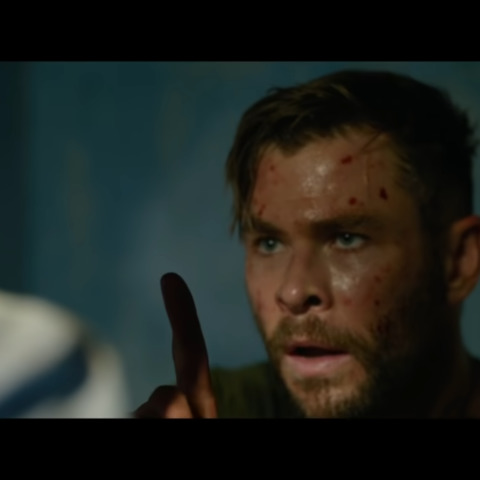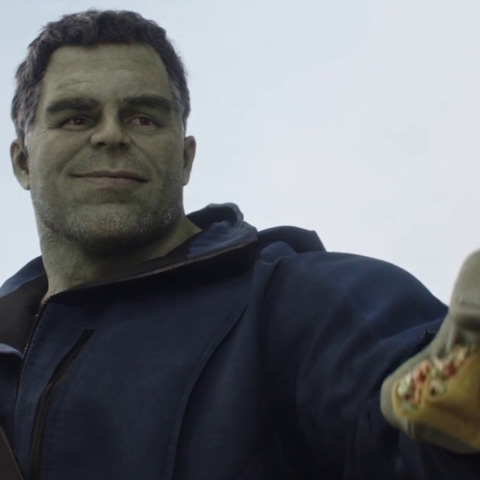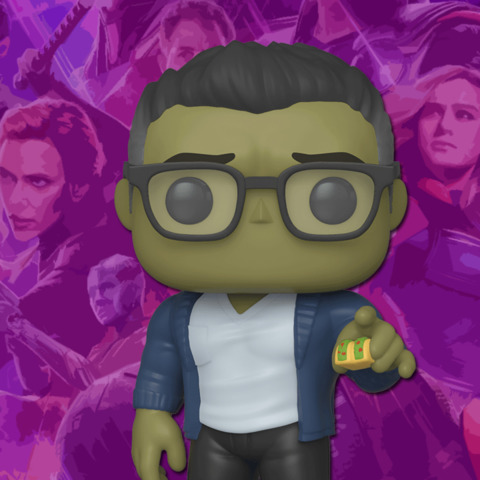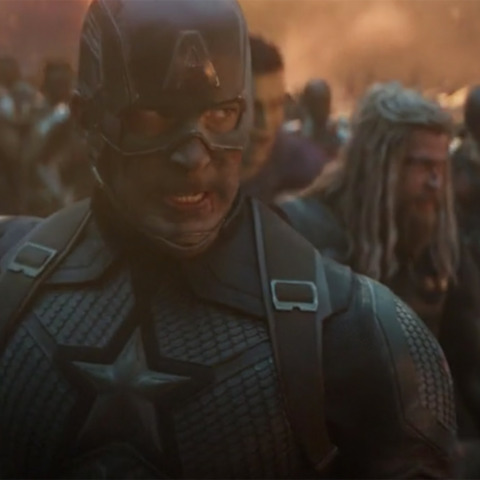Avengers: Endgame has the nearly impossible task of bringing plot threads established, expanded, and twisted across 21 different movies to a satisfying conclusion. All the stuff that's been set up, hinted at, or teased across the last decade is supposed to be leading to this one place--and not only does Endgame have to deal with all that plot, it also has to work on resolving a variety of years-long character arcs. With all that in mind, it's no wonder Endgame clocks in at three hours long.
Like any massive undertaking of this scope, some elements of Endgame are more successful than others, as Senior Entertainment Editor Mike Rougeau pointed out in his review. The story ultimately belongs to Tony Stark, and it is successful in bringing to a close what Iron Man started 11 years ago. But Endgame isn't nearly as well balanced as other Avengers movies, despite Thanos's many lectures about the importance of evening the scales, and several of its main characters are short-changed throughout the proceedings.
The character who gets mistreated the worst is, easily, Black Widow. The decision to sacrifice Black Widow for the Soul Stone is a messy and frustrating one on a lot of levels. First and foremost, Widow has more character development than just about anybody in Endgame, despite being more or less silent through the course of Infinity War. After the time skip in the post-Thanos world, it's not Captain America or Tony Stark holding the Avengers together to safeguard the world--it's Black Widow.
Natasha Romanoff has come a long way through the course of the MCU, from aloof spy at Nick Fury's beck and call to finding her calling as a full-fledged Avenger, and now, literally leading the cause. When everyone else wandered off into their respective lives--Tony starting a family, Steve processing his grief, Thor falling into depression, Hulk embracing his celebrity--Black Widow kept the lights on.
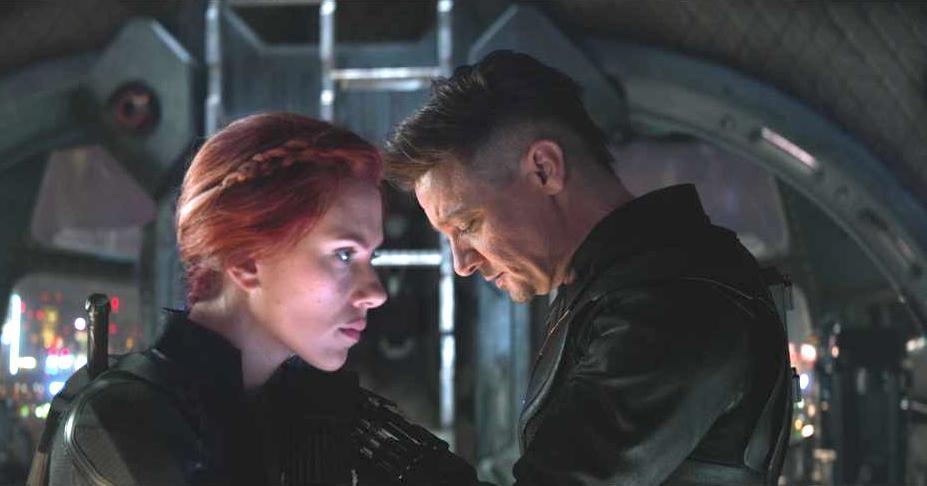
What's more, she's the character most obviously burdened by the aftermath of Thanos. Five years on and Nat can barely deal with what has happened to the world on her watch (a weight that, frankly, should have been borne by Captain America, given his past character development). Nat talks in Endgame about how important the Avengers have been to her, and how the opportunity to become a superhero allowed her to make up for her darker spy history. The team means more to Nat, seemingly, than anyone else, and their loss to Thanos devastates her.
Especially painful for Nat is what the failure to stop Thanos has done to Clint "Hawkeye" Barton, who, after losing his family, has gone full-on psychopathic vigilante. Clint is out there dealing with his loss by racking up a major body count. Nat owes Clint a great deal, as established in The Avengers: Though it's only discussed and alluded to, we know that it was Clint who brought Nat over to the side of the good guys years ago, when he could have killed her instead. A big part of Nat's story in The Avengers is that she feels indebted to Hawkeye and bent on saving him from Loki. She clearly feels responsible for what he has become in Endgame.
All that builds to a Black Widow who occupies a place at the heart of the Avengers in Endgame, but who never gets to fulfill that role in a movie that constantly overlooks her. In just a few scenes, it's clear she has the most skin in the game against Thanos, and that's where some of the most interesting potential conflict and emotion in the movie resides. But then the movie sends Nat to Vormir with Barton, where they replay Thanos's sacrifice of Gamora, but, like, friendlier.
Chucking Black Widow over a cliff on Vormir is a complete waste of her character and a frustrating end to her arc throughout the MCU (Clint, on the other hand, makes more sense for the sacrifice given what he's done as Ronin, even if offing him there would be completely predictable). Black Widow has her own standalone movie coming, which you might think makes up a bit for her death in Endgame, but it actually makes the choice to use her in this way all the more baffling. The stories of women in the MCU are finally getting told, and one of the most important ones is finally getting the spotlight--why cut off her future when you're about to flesh out her character?
And not just that--killing Black Widow in the middle of the movie is also a really bad look for a studio that has struggled with perceived sexism throughout this franchise (Marvel infamously made toys of all the heroes except Black Widow back when The Avengers came out). The next scene after Black Widow's death throws into sharp relief the fact that the movie just disposed of its most major female character: We cut back to all the remaining Avengers having feelings about the loss of Nat--and they're all dudes. Twice, the MCU sacrificed important women for a magic rock in order to give surviving men their feels.
And while Tony gets a hero's sendoff and a funeral attended by a ridiculous number of big names--including some characters who appear in the movie only for that purpose--Natasha Romanoff, a character central to the MCU since Iron Man 2, gets a momentary mention from Barton, and she has to share it with Wanda lumping in Vision.
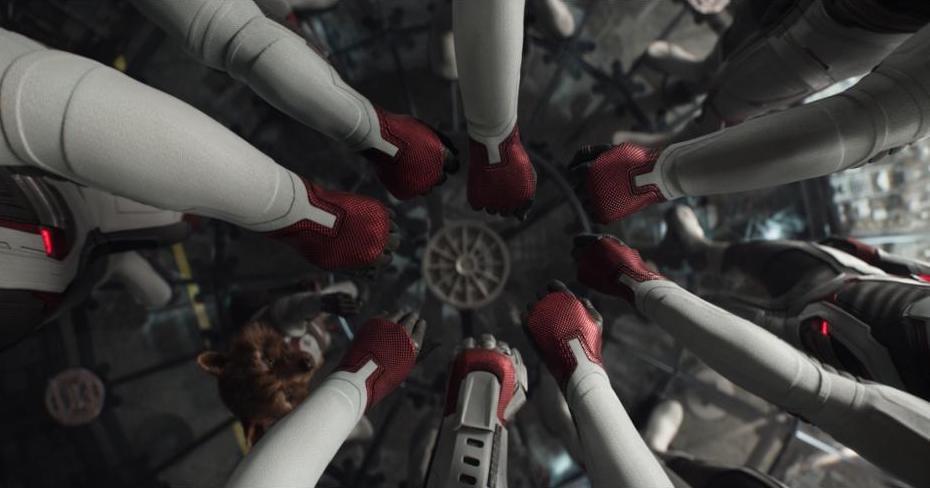
Avengers, Assemble (Around Iron Man)
Endgame's handling of Natasha is its biggest problem, but far from its only one. Rocket, Nebula, War Machine, Ant-Man--they have next to nothing going on in terms of character development and are mostly warm bodies waiting to serve functions in the plot. If they're lucky, they get a few jokes.
Hulk is flubbed even more than those others. Like most of the Avengers, Hulk has zero arc in Endgame; he mostly exists to push buttons on a console and say time travely things. It's worse than just a misuse of one of the main cast of Avengers, though. The driving force of Bruce Banner's story, the motivation at his core, is the conflict between Banner and Hulk. Banner is constantly afraid he'll lose control, and lose his very sense of self, by becoming Hulk, while hurting innocent people in the process. Through his life with the Avengers, Banner has found a use for Hulk, and in Infinity War, their dynamic changed. Banner could no longer use Hulk as his battering ram when danger reared up, and as Thor: Ragnarok established, Hulk was more than just a raging monster--he was a person unto himself.
Endgame deals with these evolving ideas about Hulk's dichotomy by resolving all his issues off-screen. During the five-year time skip, Bruce just figures out how to mix his own personality together with Hulk's. In the post-Thanos world, Bruce is doing pretty great! He gets to be huge and strong while maintaining his intellect and personality, all his personal demons have been exorcized, and he finally has love and acceptance from the people, rather than their fear and resentment--another core driver of his character throughout the MCU. Banner didn't resolve his troubles by learning or growing or doing anything; Endgame just handwaved them away and moved on.
And then there's Captain America, whose wrap-up in Endgame Meg Downey already addressed. The Avengers' through-line since the very beginning has been an ideological schism between Tony Stark and Steve Rogers that speaks to the fundamental nature of their characters. Tony will give up a lot for safety and protection, and is often looking for the preemptive solution to a problem. Steve has, tragically, lost everything and has no ties to the present world, but given the chance to get back some of what he's lost, he's willing to gamble everything. These things are why Steve would fight his Avengers pals to try to save Bucky; they're what blinded Tony to what he was risking in creating Ultron. They're why the two of them clashed in Captain America: Civil War. The wounds from that movie never healed and its conflicts were never resolved. Endgame seems ready to deal with them all, especially early on, when Tony, half-dead from starvation, took Cap to task for failing to be there to fight Thanos together as a result of their schism.

Endgame is perfectly suited to pit these two characters and their ideologies against one another. When Cap gets a time travel solution to undo Thanos' snap, Tony is stuck worrying about the family he's gained in the five years since. Cap is willing to die to retrieve what he lost; Tony is willing to die to protect what he has. It's a great setup for conflict and, eventually, resolution between the two men.
Instead, the movie conveniently just puts an end to the longstanding feud between Cap and Tony in one conversation, where both basically say, "Eh, let's move on." Meanwhile, Cap winds up with no character arc at all. He executes some time travel shenanigans and he hits Thanos in the face, and the real character stuff gets handed off to Tony. Pointedly, Steve and Tony never exchange words in the scene before Tony's death.
Endgame completely wastes plot threads set up over multiple movies that have informed the core plotlines of what makes the Avengers interesting. It's not that Endgame couldn't or shouldn't be Tony Stark's movie--it's fitting to focus on him as a bookend to how the MCU started--but a focus on Tony doesn't necessarily require the exclusion of the other Avengers. So much of Tony's development as a character has come through his interactions and disagreements with Cap, so why not bring those disagreements to a thorough conclusion that allows them both to grow? Why call the movie "Avengers" if all the Avengers aren't going to have equal importance in the story?
The thing that made the Marvel Cinematic Universe exciting was its ability and willingness to pay off investment, to build character arcs over multiple stories, making interactions between superheroes that go beyond punching people to deal with deeper emotional conflicts, scars, and baggage. Telling what is more or less one story over more than 20 disparate films has been an incredible achievement--and something that made being an MCU fan worth the time and money it requires. There are a ton of these movies, but tuning in for all of them allowed you to enjoy and understand each one in more ways than is usually possible with film franchises.
Emotionally, Endgame hits a lot of the right notes to pay off all that MCU work. There's a reason it's breaking box office records--it's a fun, exciting movie that works with the broad strokes of the MCU. As epic conclusions go, it's pretty damn epic. And the conclusion of Tony Stark's story is legitimately well-executed, thoughtful, and powerful. Despite its problems, at the top level, there's a lot of payoff for MCU fans to be had in Endgame.
But from a more granular, close-up perspective, the conclusion of that story and the MCU experiment, Avengers: Endgame is something of failure. Tony Stark's story gets the wrap-up it deserves, and a few other characters (Thor, most notably) get an emotional and involved journey that uses the best elements of the MCU to its advantage. But Endgame drops the ball on what has made the MCU movies, and the Avengers films in particular, worth showing up for over the last few years. In trying to wrap up everything neatly, Endgame fails to be the satisfying conclusion the Avengers deserved.
If you can't get enough Avengers: Endgame, we've got lots more coverage. Check out our full review of the movie; we've got rundowns of all the Easter eggs hidden throughout its three hours, and a list of every MCU character that appears in the film. You can also get an explanation of the movie's ending, and read our opinion on why Captain America's final moments don't match his character.
